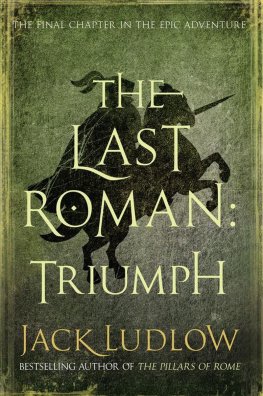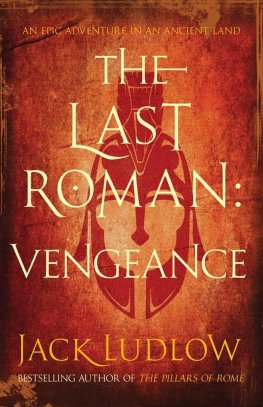Jack Ludlow - Mercenaries
Here you can read online Jack Ludlow - Mercenaries full text of the book (entire story) in english for free. Download pdf and epub, get meaning, cover and reviews about this ebook. genre: Adventure. Description of the work, (preface) as well as reviews are available. Best literature library LitArk.com created for fans of good reading and offers a wide selection of genres:
Romance novel
Science fiction
Adventure
Detective
Science
History
Home and family
Prose
Art
Politics
Computer
Non-fiction
Religion
Business
Children
Humor
Choose a favorite category and find really read worthwhile books. Enjoy immersion in the world of imagination, feel the emotions of the characters or learn something new for yourself, make an fascinating discovery.

- Book:Mercenaries
- Author:
- Genre:
- Rating:5 / 5
- Favourites:Add to favourites
- Your mark:
- 100
- 1
- 2
- 3
- 4
- 5
Mercenaries: summary, description and annotation
We offer to read an annotation, description, summary or preface (depends on what the author of the book "Mercenaries" wrote himself). If you haven't found the necessary information about the book — write in the comments, we will try to find it.
Mercenaries — read online for free the complete book (whole text) full work
Below is the text of the book, divided by pages. System saving the place of the last page read, allows you to conveniently read the book "Mercenaries" online for free, without having to search again every time where you left off. Put a bookmark, and you can go to the page where you finished reading at any time.
Font size:
Interval:
Bookmark:
Jack Ludlow
Mercenaries
PROLOGUE
For the funeral rites of a man once so powerful, this interment was a muted affair. The monks of the monastery chanted their plainsong while the Archbishop of Salerno read the service in a tone close to a whisper. The mourners were few, the two most important being the dead mans son and daughter. In the belfry, where no bell could be tolled for fear of disclosure, a servant, mallet in hand, stood guard to watch the road to the city, hidden behind the hills to the north.
His task was to warn of the approach of danger, given this was no ordinary service, but one fraught with risk both for those attending and those performing the rites. The horses on which the archbishop and his retinue had arrived were out of sight at the rear of the buildings and to a passing eye nothing unusual was taking place in the abbey church.
Guaimar, once the powerful Lombard, Duke of Salerno, was being buried in the Latin rite with the simplicity which had come to be the measure of his reign, and those who knew him well in life were aware that in part he had died of a fractured heart, deposed from his lands and titles by an act of the most diabolical treachery. The monks with whom he had shared his final years were burying a brother no greater nor lesser a man in the sight of God than they themselves. To the archbishop the service was that which he owed to a one-time generous benefactor, who had given much to the diocese and protected church property from despoliation by such endemic raiders of the shores of Italy as the Saracens of North Africa and Sicily.
The young man bearing the same name, Guaimar just turned sixteen and his sister, Berengara, two years his junior, were performing a duty they owed to a loving and revered parent, a man of reasonable disposition in a world that had required steely resolve. Raised in the ducal palace, the towering fortress of the Castello de Arechi, they too had found themselves torn from all that had been present in their lives. Yet if they had lost a home and a way of life, their father had lost a fiefdom his family had held, not without difficulty, but continuously, for three hundred years. Now he was to be laid to rest, not with his ancestors in the family vault, but close to that of his eldest daughter, whom he had loved greatly while she lived.
The single soft hammer blow on a resonant bell was enough of an alert: there were horsemen on the road, armed and coming at speed. The sound made the bishop turn as white as the plain surplice he wore; to avoid raising suspicions he had left his mitre and his glittering episcopal garments in the vestry of Salerno Cathedral. Suddenly he was gabbling the service, for he wished to be away from this place. Pandulf, Prince of Capua, called the Wolf of the Abruzzi, who had usurped the dukedom from the man he was burying, professed to be a Christian, but he was a man who never feared the wrath of God when it came to laying hands on his vicars on Earth. The Archbishop of Capua languished in Pandulfs own dungeons and his counterpart of Salerno had no desire to share his fate.
Normans.
That one word was enough to send the bishop and his attendants scurrying away to find their hidden mounts. In the belfry the sentinel watched the approach of the horsemen, mailed knights bearing lances from which fluttered the red and black colours of their leader, Rainulf Drengot, the man who had broken the heart of the deceased. Once the dukes son-in-law and his military support, Rainulf had married his late daughter, gaining as her dowry the valuable Lordship of Aversa. Upon her death, and purely out of naked greed, he had transferred his allegiance from Salerno to Capua, and it was a measure of how powerful this Norman mercenary had become in Campania that one such act of treachery had been enough to alter completely the balance of forces in the region.
Now well see who truly believes in an afterlife, said young Guaimar, his eyes fixed on the departing archbishop. That cleric was not alone: the elderly abbot, too, saw good reason to absent himself and so did some of his monks. Yet there were others whose belief in Christ, or their love of their late brother, was proof against fear and one monk stepped forward to finish the liturgy as the body was lowered, while others stood by to slide the covering stone over the grave which had been dug, as a mark of respect, before the altar of the church.
That flat block of marble, already with the name and titles of the deceased carved upon it, was pushed into place as the banging commenced on the church door: the hilt, no doubt, of a Norman sword. The dead mans son, as chief mourner, pressed into the hands of one monk a contribution to the funds of the establishment, a small purse of gold, for he was no longer wealthy; none of what their father had once owned land, castles, coffers full of coins from the dues of the trading port, jewels and family heirlooms would come to him. They were now the property of the Wolf.
Let them enter, Guaimar said.
Your safety, my Lord, and that of your sister.
Do they make war on children?
The Normans, my Lord, make war as they please.
Yet they are Christians. I cannot believe they would despoil the sanctity of the church.
The look on the face of the monk was one of doubt; in his cloistered life he had never met one of these devils from the far north, now banging furiously on the great double doors, but what he had heard left him in no doubt that they were as bloody and profane as the Saracens who had, many times, defiled this very building. Guaimar indicated with a nod that the monk should proceed, then he took station behind the grave of his father, Berengara holding his hand.
Do not worry, sister. If Prince Pandulf had wanted us dead, we would have been in the grave before our father.
Looking at her with a forced, confident smile, hoping he had the right of it, he took in the pale, long face, the dark almond eyes in flawless skin and a figure, though yet to be fully formed, which promised much. She was set to be a beauty, and for that she might have more to fear from these barbarian Normans than she did from her bloodline.
They came in with arrogant purpose, half a dozen big men in hauberks and conical helmets, while outside, through the now open doors, Guaimar could see a whole troop of mounted support, couched lances proud. The leader of the band, taller than Guaimar, had his sword unsheathed, a heavy weapon that the more willowy youngster thought he himself might struggle to wield. His boots, studded with metal, sent up sparks from the flagstones as he approached.
Guaimar knew this man just by his build and his walk; he had been at one time captain of the men who served closely his father, his personal guards, always present at his side. There was little to see of the face, no hope of reading the expression, though below the nose guard and the eyes at either side the lips were turned down in disapproval. He marched up to the opposite side of the gravestone and looked down, then used the tip of his weapon to trace the Latin inscription on the tomb. The snort he emitted had in it a fair measure of derision.
He was too soft, this man.
He was too good, Osmond, replied Guaimar, too trusting. He did not know that loyalty was, in you people, only the higher price any prince was prepared to pay.
Did your father not once pay Rainulf to turn against Pandulf?
He did, but he did not just pay him in money. He believed that he had formed a bond of family, only to see that crumble when my sister died. How does your treacherous Lord, Rainulf, like his new bride? If she is anything like her uncle, Pandulf, I would scarce feel safe to sleep at night.
The tip of Osmond de Vertins sword was suddenly pointed at Guaimar but, young as he was, he did not flinch, and his eyes held those of the Norman mercenary. Unable to stare the boy down, that tip moved to point at Berengara, and her brother squeezed hard on her hand to make sure she did not react. It came forward, as if to touch her chin and lift it. Guaimar, with his free hand, pushed it away, gently to be sure, but firmly.
Font size:
Interval:
Bookmark:
Similar books «Mercenaries»
Look at similar books to Mercenaries. We have selected literature similar in name and meaning in the hope of providing readers with more options to find new, interesting, not yet read works.
Discussion, reviews of the book Mercenaries and just readers' own opinions. Leave your comments, write what you think about the work, its meaning or the main characters. Specify what exactly you liked and what you didn't like, and why you think so.





